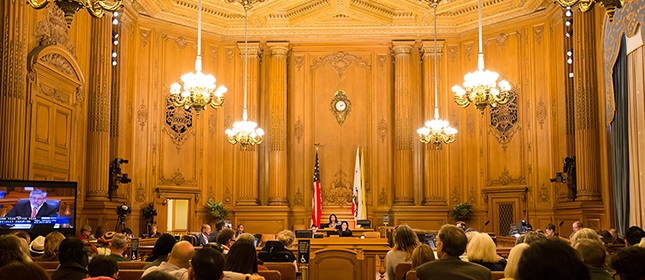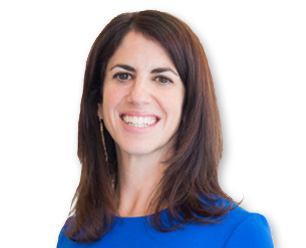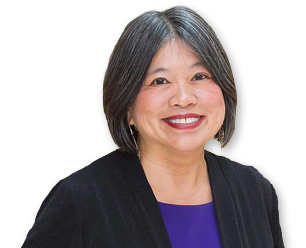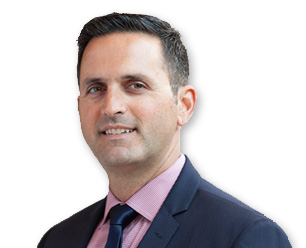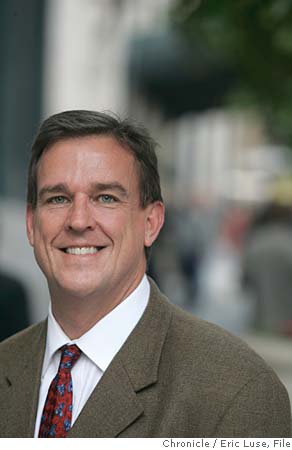Just like the ones before, the latest class of the San Francisco Board of Supervisors will have to tangle with the city’s homelessness crisis. And the four newest supervisors could play a key role.
The board welcomed them to City Hall on January 9. Three of the them—Sandra Lee Fewer, Hillary Ronen and Ahsha Safai—were elected last November to replace termed-out supervisors. The fourth, Jeff Sheehy, was appointed to fill a vacant seat after its previous occupant was elected to the State Senate.
Media have already pointed out that the 2017 board is the first in 22 years with a majority of female members. Others observed the shift in power balance between the board’s progressive wing and the moderate one. Also, speculation abounds on how strongly the board—and the City and County of San Francisco as a whole—will defend against Trump administration edicts. In a show of unity, the board vowed to resist any federal attempts of undermining San Francisco values.
In the meantime, the supervisors also have the power to appropriate funds from multiple City departments in the municipal budget. In July, they must cut $150 million because the Proposition K sales tax factored in last year failed to pass with local voters in the election. About $69 million for homeless families expected from the hotel tax has also been lost with the defeat of Proposition S.
That means the 11-member body must evaluate where in the almost $10 billion budget—or in revenue streams outside the budget—could homeless services get funding. Just as important is how much will be allotted.
That discretion is afforded to San Francisco’s elected officials, and the 2016 election might indicate what homeless people and their housed allies could expect in the new year. The three elected freshmen to the board weighed in on the campaign trail on how to house roofless residents.
Drawing upon interviews with supervisors and their staff, as well as campaign materials and press accounts, the Street Sheet examined how they would likely approach homelessness.
D9: HILLARY RONEN
Prior to her election, Hillary Ronen was chief of staff for her predecessor, David Campos. Before that, she was an immigration rights attorney. Now, as supervisor for District 9, Ronen represents an area including the Mission District. The neighborhood—particularly, the Division Street area—has become a locus for encampment sweeps. The vicinity of 16th and Mission streets is the site of the City’s low-threshold shelters known as Navigation Centers, as well as the future home of Fraternité de Notre Dame’s soup kitchen.
At a neighborhood meeting three weeks before she took office, Ronen addressed merchants’ concerns about refuse in the area by saying that she will ask the Department of Public Works to add garbage cans on Mission Street and other commercial corridors. If DPW won’t do it, she said, Ronen will introduce legislation requiring the department to do so.
“We can’t be complaining about the trash on the streets if we don’t have any trash cans,” she told the Street Sheet. “It’s just ridiculous.”
Ronen supported Props K and S, but she said that she learned a lesson on civic budgeting.
“I’m never passing a budget predicated on ballot measures,” she said. “We’re going to look for ways to reallocate within the budget so that it’s fully funded. We’re going to look for funding not just for homeless services, but for affordable housing.”
While campaigning, Ronen said that the City could bolster mental health services and explore more Navigation Centers and small-scale shelters as options.
But Ronen didn’t provide any specifics where in the budget City monies could be moved around for these programs.
“Nothing is ever simple with the budget,” she said. “The Board of Supervisors doesn’t have access to the ins and outs of it.”
D1: SANDRA LEE FEWER
Sandra Lee Fewer ran for the District 1 seat on a platform of creating affordable housing. The former school board member and self-identified progressive advocated for using as many tools available in its box to combat homelessness.
“There is no ‘one size fits all’ approach to homelessness,” she said on her campaign website. “We need a diverse range of solutions to address the needs of diverse homeless populations.”
Fewer, whose constituency covers the Richmond District, promised to build new Navigation Centers in appropriate locations, as well as a new emergency shelter for families. She also pledged to disperse Homeless Outreach Teams from the Department of Public Health in each supervisorial district. Fewer said she would expand permanent supportive housing, while supporting mental health and substance abuse programs.
Nick Pagoulatos, a legislative aide in Fewer’s office, cited the lack of affordable housing is directly related to homelessness. In her campaign, Fewer said that she would identify three sites for affordable housing, including any surplus public land.
As far as replenishing homeless funding lost from the defeat of Props K and S, Pagoulatos said that Fewer will examine unused salary savings to fill the gap. John Avalos originally proposed this legislative fix before he termed out of office. Now, Fewer is taking the lead on the proposal, Pagoulatos said.
Avalos said that $38 million could be appropriated, but Pagoulatos said the Controller’s Office might find a different amount.
“We’re working with the Controller’s office to make sure the figures are correct and the money is there,” he said, adding that the Controller periodically gives the board year-to-date numbers and will get assistance from the Budget and Legislative Analyst. “We want to make sure that we get it right and that it’s politically viable.”
Fewer is also looking at other potential solutions with a federal budget select committee, Pagoulatos said.
D11: AHSHA SAFAI
Ahsha Safai’s District 11 isn’t thought of as a hotbed of homelessness. In fact, according a City Controller’s report, the SF Homeless Outreach team visited the district encompassing the Excelsior District and the Oceanview-Merced Heights-Ingleside neighborhoods just once last March.
Safai, a moderate, won in his second bid for the D11 seat, succeeding termed-out progressive stalwart John Avalos. His victory tilted the board in the moderates’ favor, giving them—and Mayor Ed Lee—a critical sixth vote. Previously, he worked at the SF Housing Authority under Willie Brown and eventually on the commission in charge of SFHA. Safai and his fellow commissioners were fired after they were criticized by the City’s Budget and Legislative Analyst for its ineffectiveness.
In 2016, Safai won endorsements from Realtor and landlord groups, such as the Building Owners and Management Association and the SF Apartment Association.
When seeking the endorsement of the District 11 Democratic Club, he wrote to the club that he favored “aggressively addressing homelessness.” He said that he approved of Prop. K, stating “we need new sources for homeless and transportation that doesn’t take from existing revenue sources.”
However, he took no position on Prop. S, which would have provided funding for homeless services and the arts, and Prop. Q, the homeless tent ban that narrowly won. He did favor the unsuccessful Prop. R, which would have created neighborhood police units assigned to enforce so-called “quality of life” offenses on homeless people.
Furthermore, Safai told the club that the City should dedicate all available monetary and land resources in providing homeless people with clean and safe transitional housing. He also suggested that the City collaborate with for-profit businesses to create miniature housing units and increase the number of respite beds.
“We must investigate creating tiny homes, using public land and securing money from the private sector to create this housing,” he said. “We must also prioritize creating new med-psych beds in hospitals and clinics around the city to transition people away from self-medicating to proper psychiatric care.”
D8: JEFF SHEEHY
Jeff Sheehy, whom Mayor Ed Lee appointed last month, is the latest to join the board as District 8’s supervisor. A resident of the Glen Park neighborhood, he also represents the Castro, a mecca for the lesbian, gay, bisexual and transgender community—and a refuge for unhoused youth and homeless LGBT residents.
Once president of the progressive Harvey Milk LGBT Democratic Club during the ‘90s, Sheehy supported then-D8 Supervisor Scott Wiener’s state senate campaign. Now, he sits in Wiener’s former seat with the board’s moderate bloc as an expected ally of Lee. Until his appointment to the board, he was a communications director for the UC San Francisco AIDS Research Institute. He has also been a longtime HIV/AIDS activist.
In his first meeting as a supervisor on January 10, he requested a hearing on what impact expected cuts in federal funding would have on vulnerable populations in San Francisco, including undocumented immigrants, LGBT people and homeless people. As of press time, that hearing has yet to be scheduled.
Yet Sheehy recently told the San Francisco Chronicle that his district doesn’t have a place where social services—particularly those that could be accessed through a Navigation Center—could be provided.
“If you want to have a Navigation Center, there should be services nearby, and you should have neighborhood services,” he said. “I don’t see a site in District 8 where that would be possible.”
Featured image courtesy of sfbos.org.

